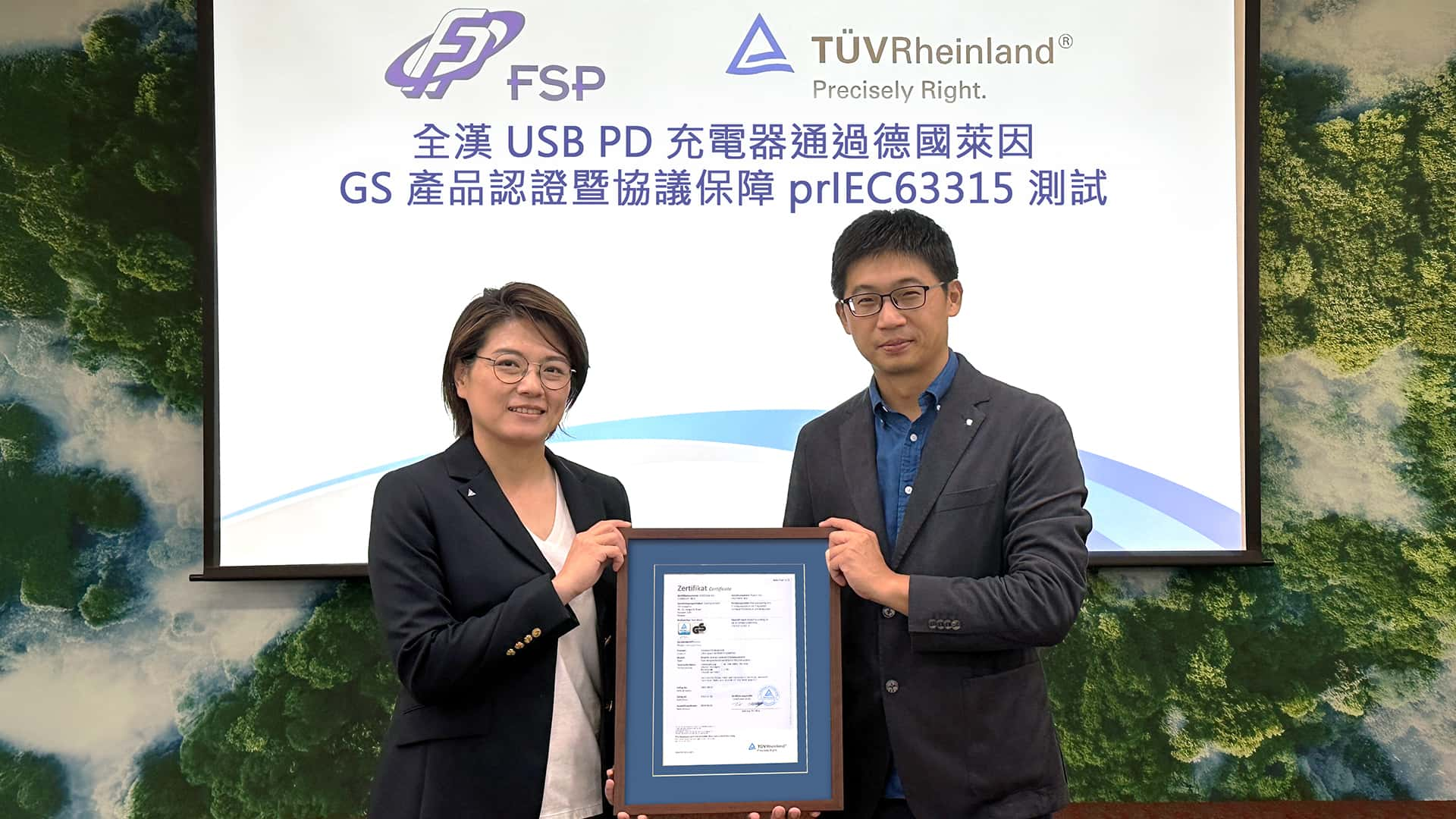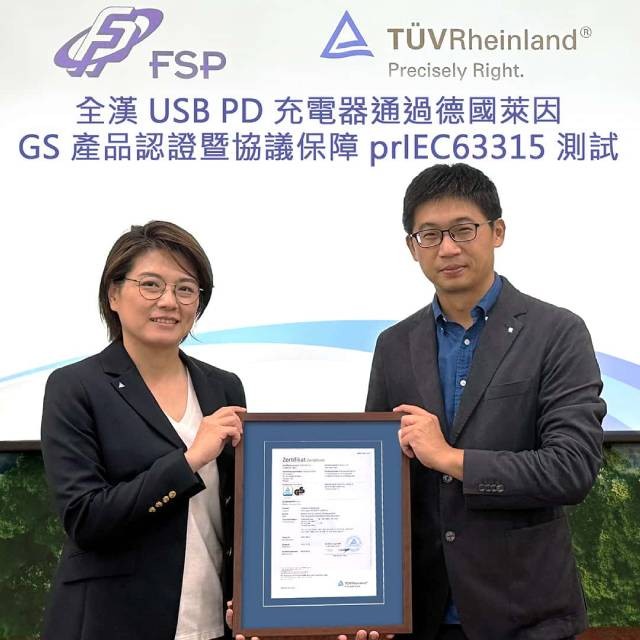prIEC 63315 Strengthens Charging Safety: FSP USB PD Chargers Obtain TÜV Rheinland GS Certification


FSP Group's USB Type-C PD 3.1 chargers (models: FSP140-A1AR3, FSP140-A1BR3, and FSP140-APDAR03) have recently passed the EN 62368-1 standard test and received the prestigious GS certification from TÜV Rheinland in Germany. This certification signifies that the products meet international standards in terms of performance stability and user safety, fully complying with Germany's Product Safety Act. It highlights the chargers' adherence to strict safety requirements and stable performance, providing end users with a safer, more reliable, and efficient charging solution.
For manufacturers in the audiovisual and information communication sectors, the commonly used IEC 62368-1 is a key safety standard that addresses the safety requirements of ICT equipment. While prIEC 63315 is still in draft form, it is expected to become a mandatory standard within a year. Manufacturers producing electronic devices with USB Type-C interfaces that exceed 100W should keep an eye on the development of this standard. The draft standard includes software functional safety evaluations, ensuring that products comply with protocols and preventing potential risks when users interchange USB Type-C devices across power sources and receiving devices.
FSP, a global leader in power supply solutions, brings its cutting-edge power technologies into a wide range of applications, including ICT, consumer electronics, industrial products, lighting, medical devices, and new energy technology. With a strong focus on green energy and user safety, FSP is one of the first companies on the market to have USB PD chargers above 100W certified by GS. These PD chargers adopt the latest USB PD 3.1 protocol, offering fast charging for laptops, smartphones, tablets, and other high-power devices. The products have passed the Protocol Safeguard Testing, which ensures higher power transmission, wider device compatibility, and enhanced safety—catering to consumer demands for high performance and rapid charging.
The USB PD 3.1 protocol improves charging performance and compatibility, while the Protocol Safeguard Testing focuses on stability and safety. Together, these features provide a dual advantage, ensuring both efficient charging and robust safety.
Undergoing Protocol Safeguard Testing is essential for USB Type-C PD 3.1 chargers. For example, a charger supporting the USB PD 3.1 EPR protocol can deliver up to 100W or more to charge laptops quickly. These chargers are often required to support a variety of devices, from smartphones to high-powered laptops, each with different voltage and current requirements. A well-tested USB PD charger automatically adjusts output when charging different devices, ensuring compatibility, and preventing issues. Additionally, as market demand for smaller, lighter devices grows, the challenge lies in creating compact products with high performance, necessitating advanced power management technology to balance power delivery and safety.
Currently, in addition to the three GS-certified models (FSP140-A1AR3, FSP140-A1BR3, and FSP140-APDAR03), FSP also offers rare 180W and 240W models. For more information, please visit the FSP Group website.
For more FSP product information, please visit:



